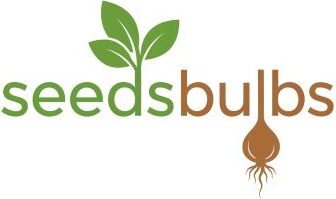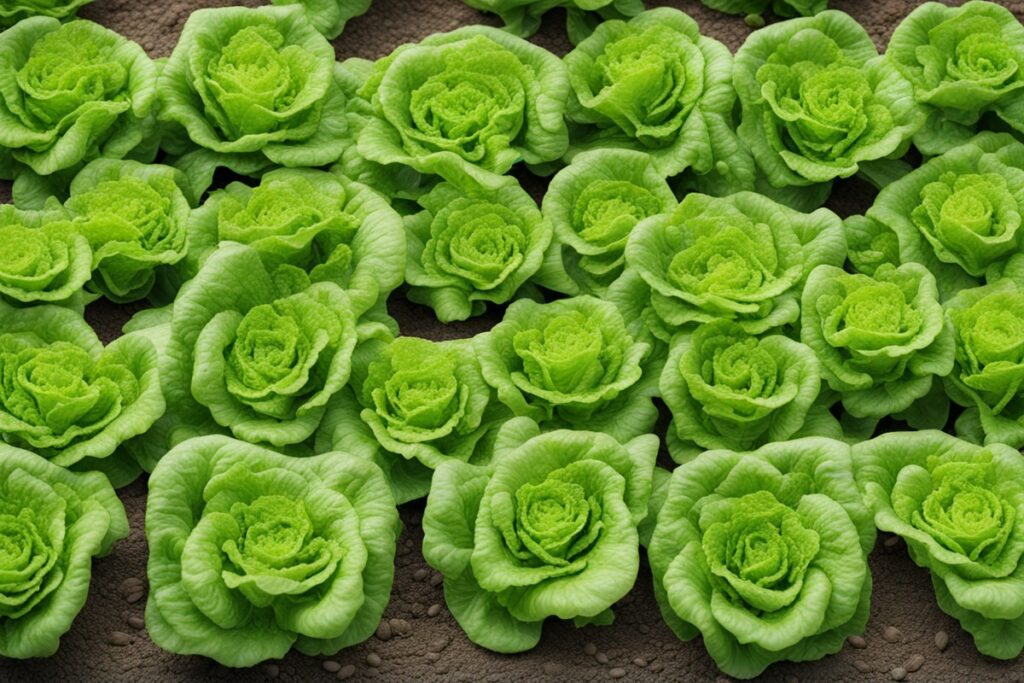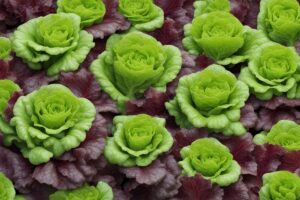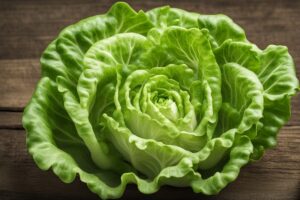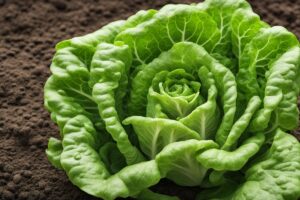Have you ever dreamed of growing crisp, vibrant lettuce right in your backyard, free from harmful chemicals and packed with flavor? If so, you’re not alone. More gardeners than ever are turning to organic seeds to ensure their harvest is as pure as nature intended. And when it comes to finding the best options, searching to buy organic lettuce seeds online opens up a world of variety and convenience. But with so many choices out there, how do you know where to start? Let me walk you through everything you need to know—from selecting the right seeds to planting tips that’ll have you harvesting in no time. I’ve been growing lettuce for over a decade, and I’m excited to share the lessons I’ve learned along the way.
Why Choose Organic Lettuce Seeds?
Let’s kick things off with the “why.” Organic lettuce seeds aren’t just a trendy buzzword—they’re a commitment to healthier gardening. Unlike conventional seeds, organic ones are grown without synthetic pesticides or fertilizers, meaning you’re starting your garden on a clean slate. I remember the first time I switched to organic seeds; I was skeptical, thinking, “Will they really grow as well?” But after seeing the robust, flavorful heads of romaine in my plot, I was hooked. Studies from university extension services, like those at Cornell, back this up: organic practices often lead to stronger plants over time because they encourage natural resilience.
Beyond personal health, buying organic supports sustainable farming. It’s a small way to vote with your dollar for a cleaner environment. Plus, when you buy organic lettuce seeds online, you often get access to heirloom varieties—think Black-Seeded Simpson or Buttercrunch—that big-box stores rarely carry. These aren’t just seeds; they’re a piece of history, passed down through generations of gardeners. So, why settle for less when you can grow something extraordinary?
Where to Buy Organic Lettuce Seeds Online
Now that you’re sold on going organic, the next question is: where do you find them? The internet is a treasure trove, but it’s also a bit of a Wild West. I’ve ordered from countless online seed shops over the years, and I’ve had both bumper crops and total flops. My go-to tip? Stick to reputable suppliers. Websites like Baker Creek Heirloom Seeds, Johnny’s Selected Seeds, and High Mowing Organic Seeds have built trust with gardeners for a reason. They offer detailed descriptions, germination guarantees, and often, customer reviews that give you the real scoop.
Imagine you’re scrolling late at night, bleary-eyed, and you stumble on a too-good-to-be-true deal. Before you click “buy,” check for certifications like USDA Organic or Non-GMO Project Verified. These labels aren’t just fancy stickers—they’re proof the seeds meet strict standards. Also, look for sellers who provide clear info on seed origin and storage. A good seed packet will tell you when it was harvested and how to store it for maximum viability. Trust me, there’s nothing worse than planting a whole row of lettuce only to realize the seeds were duds.
How to Choose the Right Lettuce Variety for Your Garden
Not all lettuce is created equal, and picking the right variety is half the battle when you buy organic lettuce seeds online. Are you craving crisp iceberg for sandwiches, tender butterhead for salads, or spicy arugula to jazz up your meals? I once made the rookie mistake of planting a heat-sensitive variety in the middle of a scorching July—let’s just say I harvested more wilted leaves than salad. Lesson learned: match your seeds to your climate and season.
Lettuce generally falls into four main types: loose-leaf, romaine, butterhead, and crisphead. Loose-leaf varieties, like Red Sails, are my personal favorite for beginners because they’re forgiving and quick to grow—you can start harvesting in as little as 30 days. Romaine, on the other hand, takes longer but offers that satisfying crunch. If you’re in a warmer region, look for heat-tolerant options like Jericho romaine. Most online seed catalogs will include growing zones and tips, so read up before you commit. And don’t forget to consider your space—got a tiny balcony? Opt for compact varieties that thrive in containers.
Tips for Planting and Growing Organic Lettuce Seeds
Alright, you’ve got your seeds—now what? Planting lettuce is pretty straightforward, but a few insider tricks can make all the difference. First off, lettuce loves cool weather. I usually sow mine in early spring or late summer to avoid the heat stress I mentioned earlier. If you’re in a hotter area, consider using shade cloth during peak sun hours. I’ve rigged up old bedsheets over PVC frames in a pinch, and it worked like a charm.
Start by preparing your soil—lettuce isn’t picky, but it thrives in loose, well-draining earth with plenty of organic matter. I mix in compost from my backyard bin to give the seeds a nutrient boost. Sow them shallowly, about ¼ inch deep, and keep the soil consistently moist but not soggy. Here’s a pro tip: sprinkle a thin layer of mulch over the top to retain moisture and deter weeds. Within 7-14 days, you should see those tiny green sprouts popping up. Thin them out to avoid overcrowding—trust me, I’ve skipped this step before and ended up with stunted plants fighting for space.
Common Challenges When Growing Lettuce (and How to Fix Them)
Even with the best intentions, growing lettuce isn’t always smooth sailing. Pests like slugs and aphids love to munch on tender leaves as much as we do. I’ve battled slugs for years, and one trick that’s saved me is setting out shallow dishes of beer near my beds—they’re drawn to it, fall in, and that’s the end of their salad bar. For aphids, a strong blast of water or a diluted neem oil spray works wonders without compromising your organic ethos.
Another headache is bolting, where lettuce shoots up a flower stalk and turns bitter when it gets too hot. If this happens, don’t despair—harvest what you can and replant with a heat-resistant variety. And let’s talk about germination rates. Even when you buy organic lettuce seeds online from a trusted source, not every seed will sprout. That’s just nature. I always plant a few extra to account for duds. If you’re struggling, test your soil pH (aim for 6.0-7.0) and ensure you’re not overwatering, which can rot the seeds before they even start.
Why Buying Online Beats Local Stores (Sometimes)
Don’t get me wrong—I love popping into my local garden center for a chat and a browse. But when it comes to variety and specifics like organic certification, online shopping often wins. Last spring, I was hunting for a rare oakleaf lettuce variety for a themed salad garden I was designing. My local store had the basics, but online, I found exactly what I needed within minutes. Plus, many online retailers offer bulk discounts if you’re planting a larger plot, and they ship right to your door. That said, be mindful of shipping times—order early to avoid missing your planting window. And always double-check return policies in case of damaged goods. A balanced approach? Buy online for specialty seeds and support local for tools and soil amendments.
So, are you ready to dive into the world of organic lettuce gardening? Whether you’re a seasoned green thumb or just starting out, taking the leap to buy organic lettuce seeds online is a decision you won’t regret. It’s not just about growing food—it’s about nurturing a connection to the earth, one crisp leaf at a time. With the right seeds, a bit of know-how, and a sprinkle of patience, you’ll be tossing farm-fresh salads before you know it. I’ve shared my journey, my flops, and my wins, and now it’s your turn. Get out there, plant something amazing, and let nature do the rest.
References
- Cornell University Extension – Growing Organic Vegetables at Home
- University of Minnesota Extension – Growing Lettuce
- Missouri Botanical Garden – Lettuce Growing Guide
- Penn State Extension – Starting a Vegetable Garden with Organic Methods
- Michigan State University Extension – Growing Lettuce in the Home Garden
Disclaimer: This article is for informational purposes only, based on general research and personal experience. It is not intended to serve as a substitute for professional advice. Gardening outcomes can vary widely depending on local conditions, individual practices, and other factors. Always consult a qualified professional, such as a local extension agent or horticulturist, for personalized guidance tailored to your specific situation. The author and publisher are not responsible for any adverse effects or consequences resulting from the use of the information provided in this content.
This content is for informational purposes only and not a substitute for professional advice.
